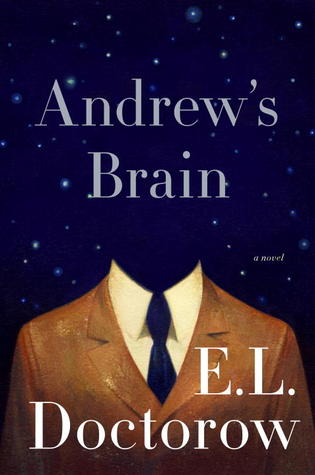
Andrew’s Brain: A Review

Andrew’s Brain: A Review
By: claycormany in Books
Any list of the best 100 novels published over the last 100 years will almost certainly include E.L. Doctorow’s Ragtime, a story of economic and racial injustice and one man’s violent response to it in early 20th-Century New York City. I recently read Andrew’s Brain, the last novel Doctorow published before his death in 2015.
Andrew’s Brain is a quirky, intriguing story that unfolds as an ongoing dialogue between cognitive science college instructor Andrew and an unnamed doctor who is presumably a psychiatrist. This dialogue covers an extended — though unspecified — period of time, and, with a couple of exceptions, takes place in the doctor’s office. Doctorow wastes no time clarifying Andrew’s problem. Through carelessness, negligence, or just bad luck, this guy has a knack for bringing misfortune to others. Sometimes the misfortune is merely embarrassing; sometimes it is deadly.
Andrew’s propensity to cause disaster intertwines with the events of his life, which he reveals in his dialogue with “doc.” Highlights of that life include a trip to Europe as a Yale student, a romantic relationship with Briony, one of his own students, a retreat to a remote cabin by a fjord, and an unlikely appointment as a Presidential adviser. Andrew sometimes becomes frustrated with his doctor, exclaiming “why do I bother talking to you?” In fact, it’s not clear what Andrew hopes to gain from his dialogue with “doc,” although the psychiatrist sometimes assures Andrew that he is not always exclusively to blame for the misfortunes that befall those around him.
Andrew is an interesting, if not always likable, character. He has a Forrest Gump habit of interacting with well-known people and at least one significant historical event. He also has a puzzling habit of sometimes referring to himself in the third person. In his capacity as a cognitive scientist, he raises some fascinating questions about the nature of consciousness and whether a person’s brain has a separate existence from the person himself/herself. On the other hand, Andrew displays a streak of arrogance. Besides sometimes disrespecting his doctor, he also doesn’t have a high regard for his students. One in particular, who he calls “the lout,” he decides to flunk for being his rival for Briony’s affections.
Doctorow has a rich vocabulary that he uses to create powerful, sometimes moving images. His descriptions of the Wasatch Mountains, which overshadow the college where Andrew teaches, are especially striking. At the same time, the author avoids over-wording his sentences, allowing him to create a relatively free-flowing narrative. There were times when I wished the doctor played a more active role in the story, perhaps challenging Andrew more often. I particularly hoped he would reprimand Andrew for making advances toward Briony. Teacher-student romances are an absolute taboo at every level of education in the U.S.
If there’s an underlying message to Andrew’s Brain, it might be the realization that any action we take, however insignificant or well-meaning, has the potential to cause or contribute to a tragedy. However, unless we wish to live a life of complete seclusion — maybe in a cabin by a fjord — there is nothing we can do to avoid that danger.
Tags: Andrew, Briony, doctor, Doctorow

